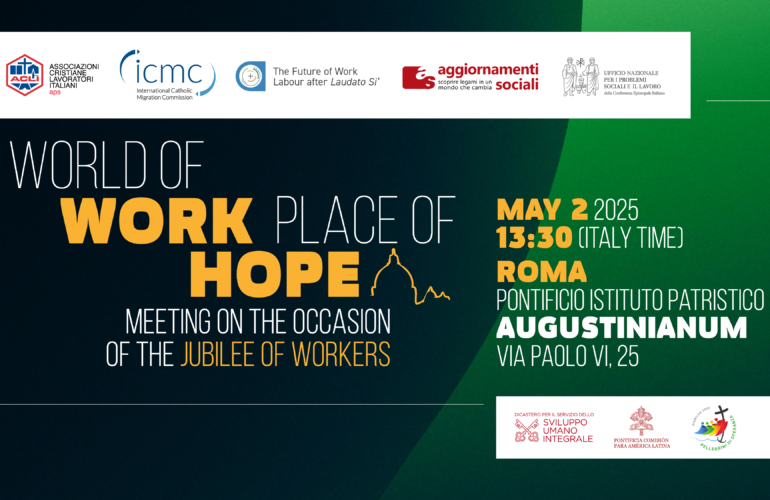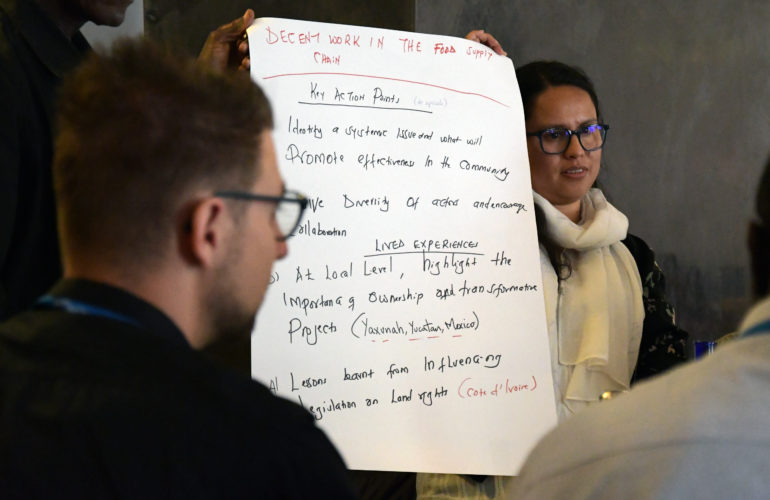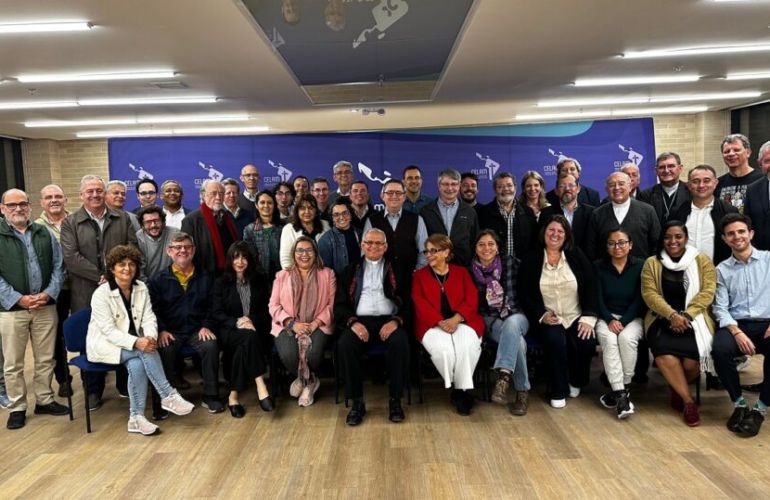A Call to Fight Bonded Labor in India

Millions of people are trapped in bonded labor in India. They are forced to work in agriculture, construction and manufacturing. Many are migrants who became vulnerable when they left their home regions for unfamiliar places where they don’t understand the local language. The Catholic Bishops’ Conference of India rescues many victims of this form of human trafficking and raises awareness among people likely to migrate.
In India, some 40 million children, women and men are trapped in bonded labor, a form of modern-day slavery. Despite being outlawed, the practice, also known as debt bondage, remains common as people are unaware of the law and their rights. As a result, individuals unable to pay off debts they have contracted and their families are forced to work for little or no salary, often for generations. Forced labor is common in brick kilns, agriculture, the manufacturing and mining industries as well as in domestic work.
Recently, internal migrants have also become prey to this plight, explains Sr. Kochurani Joseph, a member of the North Indian Province of the Sisters of the Holy Cross Menzingen, a congregation based in Switzerland. When residents of impoverished regions migrate to wealthier parts of the country in search of employment, factors such as language barriers between states and their inability to orient themselves in an unfamiliar area make them vulnerable to being trafficked into bonded labor.
Sr. Joseph works at the Catholic Bishops’ Conference of India’s Office for Labor. The office raises awareness of the issue and rescues many survivors. “The rescue process is a herculean task. Whenever a case is reported to us, we approach it legally. We have to identify the place and the victim. We have to file a complaint to the police and then an application to the District Magistrate,” she says. Accompanied by police officials, they can then rescue such victims of trafficking or bonded labor.
“In March 2018, around 200 children were released from a jeans factory,” she says. “These children were seated from morning till night. They never saw the light outside. Food was lacking. They had to work continuously” until they were identified by an NGO and rescued.
According to the law, reporting cases of bonded labor to the authorities is mandatory. “But people are not aware of the laws,” she explains. The Office for Labor trains local priests, religious sisters, social work directors and other lay staff to recognize and respond to cases of labor bondage across India. They also work with local parish priests to train prospective migrants on the risks of trafficking and debt bondage and on safe migration practices.
“Some awareness-raising is taking place, but we need more because the people from the villages, the most remote areas, do not know about the risks.” Recruiting agents involved in human trafficking target youth from remote areas, luring them into migration by promising them a job or a better education in a large city. “Naturally, the youth will be enticed and go with them, only to land up in prostitution or bonded labor,” says Sr. Joseph.
Sr. Joseph participated in the 2-3 December meeting of the ICMC Asia-Oceania Working Group in Bangkok, Thailand. The Working Group was founded in 2008 to strengthen collaboration between countries and within the Church on migration-related issues in the region.
The 2019 meeting gathered over 70 participants from 25 countries representing the Holy See, Episcopal Conferences, local civil society organizations, international organizations and think tanks. The conference was conducted jointly with the High-Level Regional Conference organized by ICMC’s Initiative on the Future of Work.


